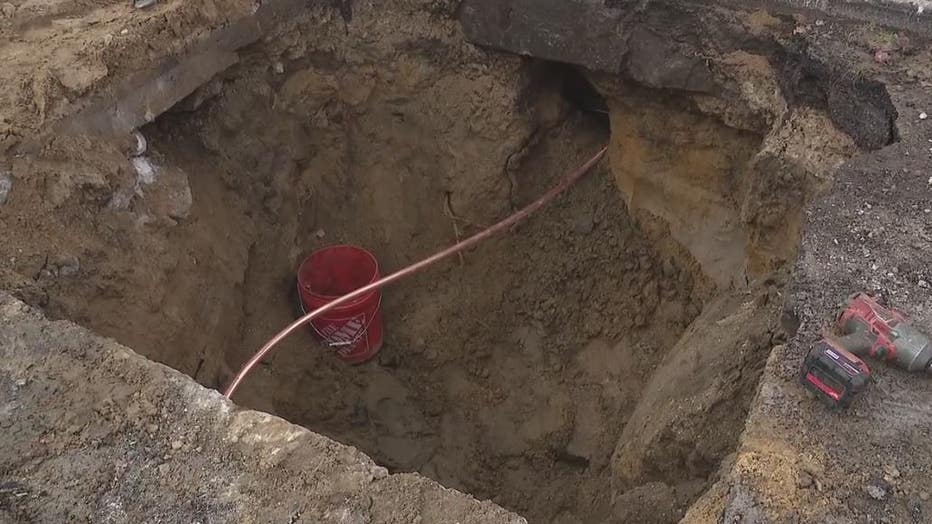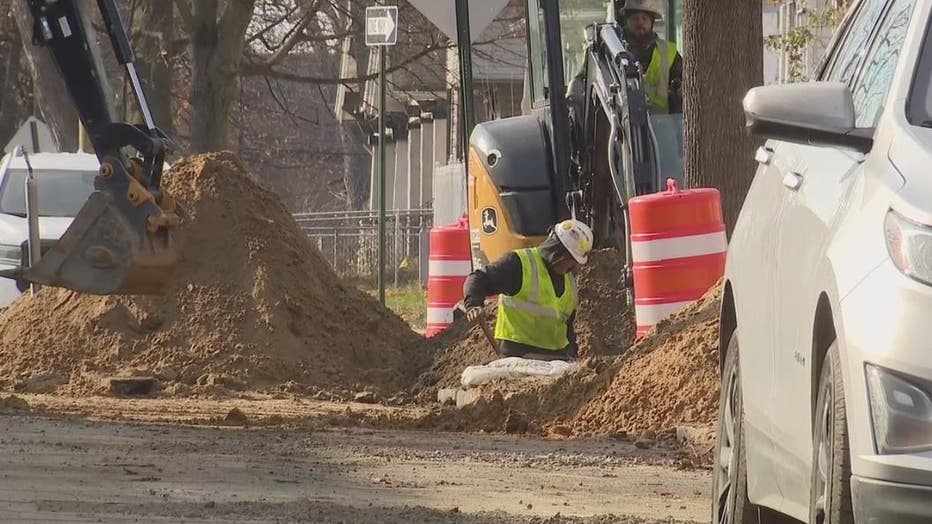City of Detroit's lead water line replacement underway with goal of 10K per year

City of Detroit's ambitious plan to replace lead water lines is underway
Detroit is moving forward despite the winter months with a goal of replacing 10,000 lead water lines a year.
DETROIT (FOX 2) - The EPA wants to eliminate all of the country's lead water pipes quicker, proposing a rule to speed up the process of replacing the lines. The CIty of Detroit however, is already taking action.
On Thursday the City's water department workers could be found on the southwest side with a major transformation underway.
"You see the lead service lines being replaced in this neighborhood," said Gary Brown, director of the Detroit Water and Sewerage Department.
DWSD has replaced more than 5,000 lead service lines since 2018 and its work continues as the federal government issues a timeline to replace lead water pipes.
"The EPA has come out with revisions to the lead and copper rule," Brown said.
Michigan made national headlines when thousands of Flint residents were exposed to lead when the drinking water source was switched from the Detroit Water Authority to the Flint Water System.
"There’s no safe levels of lead and drinking water for our kids - no safe level," Brown said.
In response to the Flint water crisis, Congress authorized funding for change.

Now under the Biden Administration, most cities have to replace lead water pipes within 10 years under rules proposed by the Environmental Protection Agency.
The agency is also reducing the action level for lead in drinking water from 15 parts per billion to 10 parts per billion.
Due to the federal funding, taxpayers won't be forced to have to pay for the upgrades.
"We’re not going to be charging residents in the rates," Brown said, adding that the work is creating jobs for Metro Detroiters. "It’s a win-win. Not only am I hiring Detroiters at DWSD to do this work but we carved out $5 million for small plumbing companies to be able to do this work."
And the work there on Whitaker will soon make its way to your neighborhood.
"We’re going to try to do 10,000 lines a year," Brown said. "I don’t know any state in America that’s working at that level. But that’s our commitment to get this done in 10 years."
And that means not taking a break during the frigid winter months.
"We may not be able to go as fast and subzero temperatures, but we will work right straight through the winter," Brown said. "We all want the same thing; we want the lead lines out."


